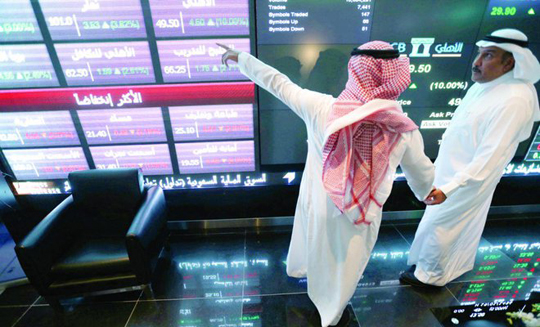Jeddah, Mar 16: Moody’s Investors Service has revised its outlook for the Saudi banking system to stable from negative.
Saudi banks are more profitable than most of their Gulf Cooperation Council (GCC) peers, with an average ratio of net income-to-tangible assets of 1.9 percent as of 2016, on a par with Qatari banks, said a Moody’s report issued on Wednesday.

The stable outlook reflects high risk-absorption buffers and easing funding pressures, as Saudi banks’ credit profiles are expected to remain broadly stable over the next 12 to 18 months, the report said.
“Despite low oil prices, which we expect to fluctuate between $40 and $60 a barrel over the next 18 months, and cuts in oil production, the Saudi economy will gradually recover, supported by government spending,” said Olivier Panis, a vice president at Moody’s.
He added that as a result Saudi banks’ liquidity and funding conditions would improve.
“Although profitability and loan performance will continue to soften, Saudi banks will maintain robust capital and loss-absorption buffers compared to regional and international peers over the outlook horizon,” the analyst said.
According to Moody’s, the operating environment for Saudi banks will recover. While the rating agency expects real gross domestic product (GDP) growth to contract by 0.2 percent in 2017, increased government spending and projects to diversify economic output will support a gradual recovery of the non-oil economy, which will grow by 2 percent in 2017 versus 0.2 percent in 2016.
Consequently, Moody’s expects credit growth to remain low at 3 percent in 2017, but it is likely to gradually pick up from 2018.
Analysts expect non-performing loans (NPLs) to increase to 2.5 percent of the gross loans over the outlook horizon, from a low level of around 1.4 percent as of September 2016.
Although banks will also remain vulnerable to high single-party exposures and opacity in the corporate sector, they will maintain the highest level of loan-loss provisioning coverage in the region, the report said.
According to Moody’s, Saudi banks will maintain a solid operating performance, although subdued loan growth, rising provisioning charges and lower fee and commission income might weigh on profits.
The impact will be partly mitigated by stable margins, low operating costs and easing pressure on funding costs. Despite Moody’s expectation of reduced profitability, subdued loan growth will support capital adequacy, which will strengthen from already strong levels.
Moody’s said that access to funding will improve owing to liquidity injections from international sovereign debt issuances, the clearing of large volumes of overdue payments to contractors by the government in the fourth quarter of 2016 and modest credit growth.
However, deposit growth will remain low until economic activity picks up more materially in 2018.







Comments
Add new comment